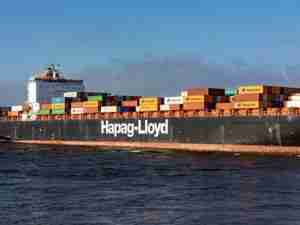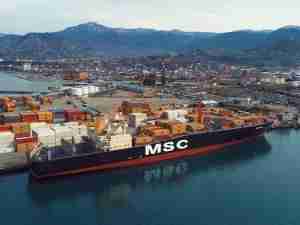By Peter A. Buxbaum, AJOT
A majority of those filing comments with the Federal Maritime Commission support a proposed rule which would allow NVOCCs expanded authority to enter into NVOCC Service Arrangements, or NSAs.
The FMC first promulgated a rule providing for NSAs only a few months ago but included two restrictions at the same time. One prohibited an NVOCC from entering into an NSA with another NVOCC, and the second prohibited a shippers' association with an NVOCC member to enter into an NSA with an NVOCC. The FMC instituted those restrictions because it wanted to be certain that NVOCCs could not skirt the antitrust laws. But a recent federal appeals court ruling held that the intermediaries are not entitled to antitrust immunity for collusive behavior. Shippers and intermediaries immediately urged the FMC to liberalize the NSA regime to remove the remaining restrictions after that court ruling was made public.
The FMC's latest proposed rule would remove those two disabilities from the NSA regime. Supporters of the proposal say the move will enhance competition and expand the array of services that NVOs can offer. Opponents say the FMC lacks the legal authority to institute its proposed changes. One commenter urged the commission to clarify the proposed rule so that NVOs acting as shippers could not avoid Customs rules on advance manifest filings.
Comments filed by CaroTrans International, Inc. were typical of the NVO filings favoring the easing of the restrictions. CaroTrans noted that Section 16 of the Shipping Act of 1984 grants the FMC, "broad authority to grant the exemption from any of the requirements of the Shipping Act as long as the exemption will not result in a substantial reduction in competition or be detrimental to commerce."
The adoption of the proposed rule, "clearly would be beneficial to ocean commerce," according to CaroTrans. It would provide CaroTrans the ability to provide contract terms for ocean transportation as well as door-to-door delivery arrangements, according to its comments. CaroTrans went on to say, "Co-loading arrangements, especially those termed carrier-to-shipper in a tariff context, aside from the issue that they are not confidential, would be strained, difficult, if not impossible to structure in a tariff format."
CaroTrans also contended that carrier-to-shipper NVO relationships, "will now evolve into more competitive relationships in a confidential NSA environment. NVOs will deal with each other on a carrier/shipper basis with greater flexibility than the tariff-based structure currently allows. The regulatory ambiguities of carrier-to-carrier relationships also becomes moot in the context of NSAs between NVOs."
Confidentiality is the key for creating a more positive and competitive environment among NVOs, according to CaroTrans. "The same confidentiality that spurs competition in the ocean carrier/shipper environment in service contracts will now impact on the NVO (as carrier) and the NVO (as shipper) relationship."
The same NVO-as-carrier and NVO-as-shipper ambiguity, however, left the World Shipping Council with some uncertainty about the regulatory implications. The WSC's "concern is to ensure that the action proposed by the Commission cannot be used or interpreted by shipper NVOCC parties to NSAs in a way that would allow them to seek to avoid their obligations as carriers to timely file their cargo declarations with [the Bureau of Customs and Border Protection," according to the council's filed comments.
If one NVOCC enters into an NSA with a second NVOCC, the WSC posits, the shipper NVO does not have a relationship with an ocean common carrier and could be considered a shipper party under the proposed rule. It is nearly impossible "for the ocean carrier...to know who such NSA shipper NVOCCs are, or whether they are complying with all their regulatory obligations," the WSC comments noted. "Nevertheless, their compliance with Customs' security requirements can affec









